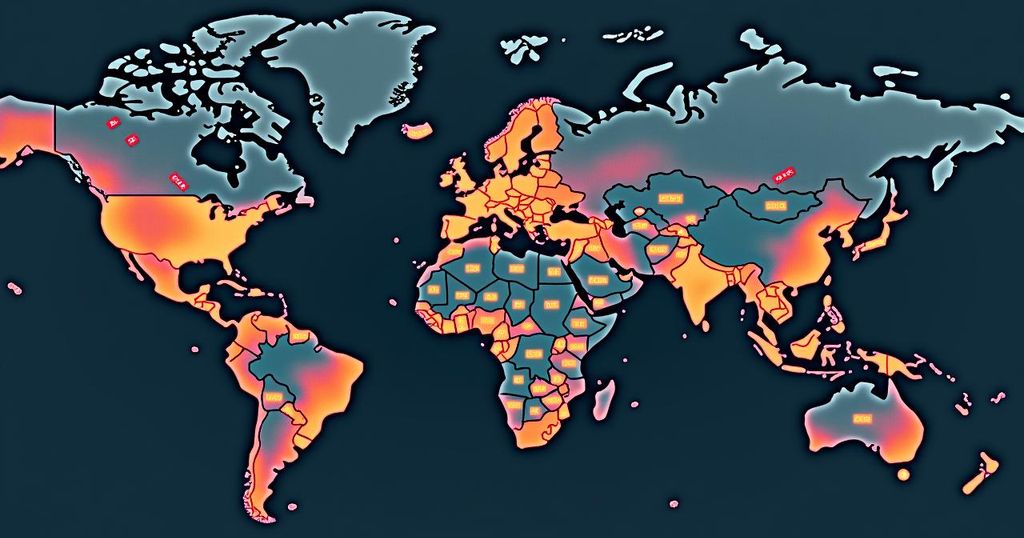Mpox is spreading internationally, with new and more severe cases reported in countries outside Africa, including Sweden, Thailand, the Philippines, and Pakistan. The WHO has declared the outbreak a public health emergency. The DRC remains at the epicenter of the epidemic, accounting for the majority of cases. The potential for further spread in other regions necessitates close monitoring and preventive actions.
In recent weeks, mpox, a previously less prevalent disease, has emerged as a global concern, with multiple countries confirming cases of a new and potentially deadlier variant of the virus. Initially identified in East Africa, the outbreak has now extended beyond the continent, with reported cases in four non-African nations: Sweden, Thailand, the Philippines, and Pakistan. In total, fourteen African nations have documented infections, exacerbating fears of the virus’s rapid expansion. The World Health Organization (WHO) has declared the mpox outbreak a “public health emergency of international concern,” underscoring the urgency of the situation. This new strain, designated as Clade 1, is distinguished from earlier variants due to its increased transmissibility through skin-to-skin contact. Notably, a Clade 1b variant has recently been discovered in the Democratic Republic of the Congo (DRC), where the largest outbreak is currently unfolding, with over 13,791 cases reported as of August. Countries across Africa continue to report high case numbers, prominently featuring cases originating from the DRC, where 96% of mpox infections are concentrated. Meanwhile, the Clade 2 variant, which previously caused a significant outbreak in 2022, is still being documented, albeit at lower levels. In Asia, Thailand and the Philippines have confirmed their respective cases linked to Clade 1b and the milder Clade 2 variant, while Pakistan has reported its first case. In Europe, Sweden has also recorded an mpox case, raising concerns about potential transmissions in regions connected by frequent travel. Although there have been no confirmed cases in the Americas, Oceania, or the Middle East, health authorities are remaining vigilant in monitoring the situation and addressing possible future infections. Countries are urged to maintain heightened surveillance and testing measures to prevent further outbreaks of both Clade 1 and Clade 2 variants. Overall, the evolving mpox scenario necessitates immediate global attention and coordinated public health responses to mitigate its spread.
Mpox, previously known as monkeypox, is a viral disease first identified in 1958. It typically spreads from animals to humans and can be transmitted between humans through direct contact. The disease features symptoms such as fever, rash, and swollen lymph nodes, leading to complications in more severe cases. Recent outbreaks indicated a potential shift in the virus’s characteristics, leading to a new strain with alarming transmissibility and increased severity. The WHO has categorized mpox among diseases requiring heightened preventive measures and immediate attention, especially as cases rise worldwide.
The mpox epidemic has intensified, prompting declarations of public health emergencies as countries across the globe report new infections of a potentially more fatal strain. With the DRC experiencing severe outbreaks and cases appearing in Asia and Europe, health organizations are mobilizing resources to monitor and respond swiftly. Vigilant surveillance, effective treatment strategies, and public awareness are essential for mitigating the risks associated with this viral disease.
Original Source: www.aljazeera.com







